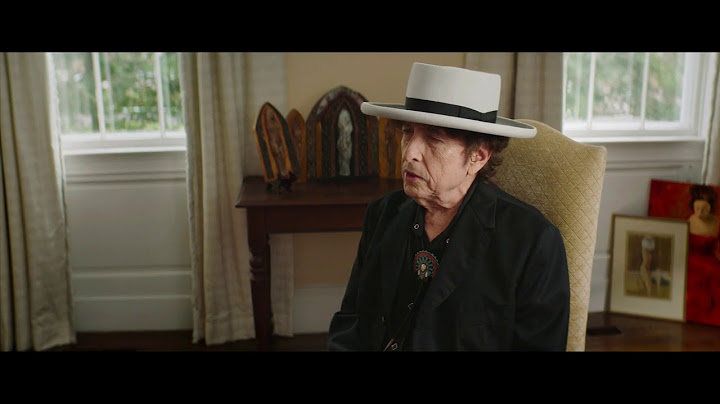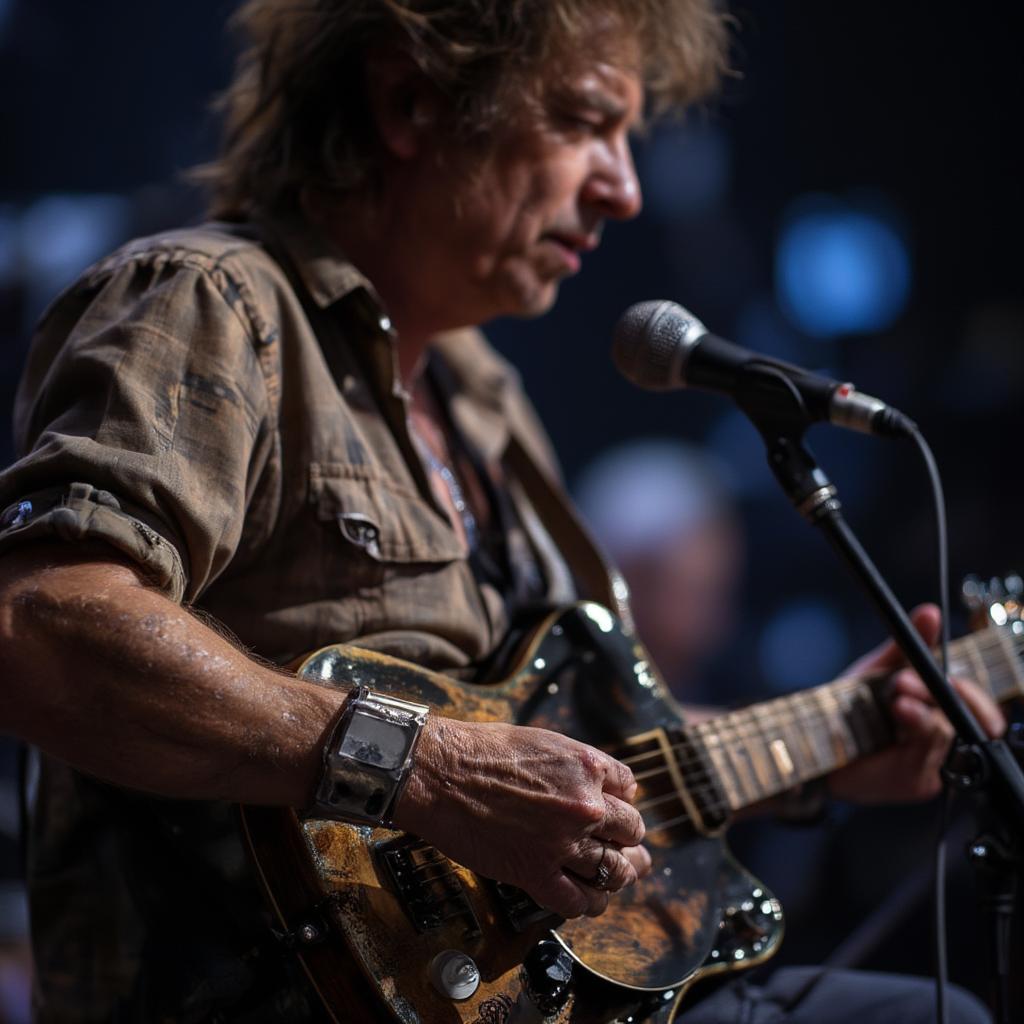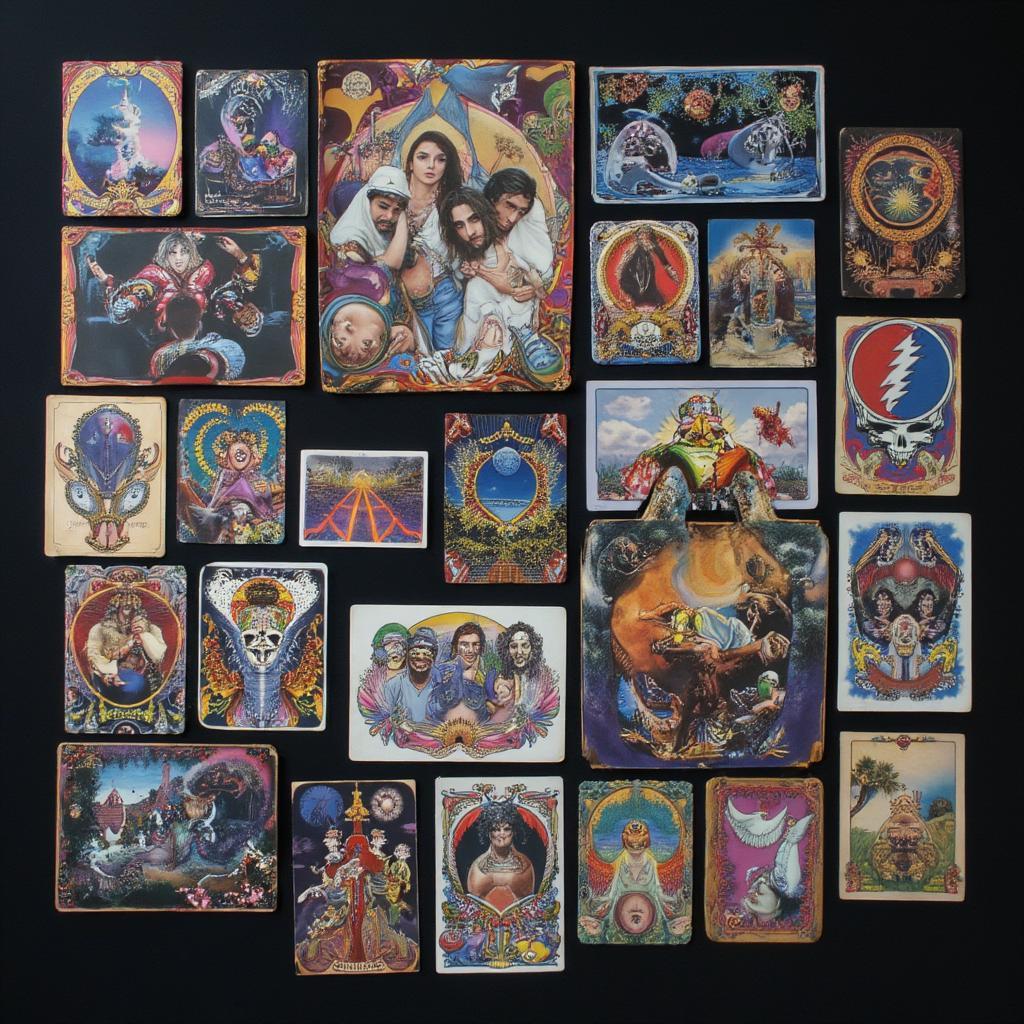Bob Dylan and Mavis Staples A Shared Passion for Social Justice

Bob Dylan and Mavis Staples are two of the most iconic and influential figures in American music. Though their musical styles and backgrounds differ, they share a deep-rooted commitment to social justice and advocacy for marginalized communities. Throughout their respective careers, spanning decades and genres, Dylan and Staples have used their platforms to amplify the voices of the disenfranchised, challenge societal norms, and inspire generations of artists and activists.
From the Civil Rights Movement to the Modern Era: Exploring the Intertwined Careers of Bob Dylan and Mavis Staples
The Formative Years: Roots in the Civil Rights Movement
Bob Dylan and Mavis Staples both emerged from the turbulent social and political landscape of the 1950s and 1960s, a time marked by the ongoing struggle for civil rights and racial equality in the United States. Dylan, a young folk musician from Minnesota, found his voice in the Greenwich Village folk scene, where he honed his skills as a lyricist and storyteller, often drawing inspiration from the civil rights movement. Mavis Staples, on the other hand, was an integral part of the iconic gospel group The Staple Singers, led by her father, Roebuck “Pops” Staples. The Staple Singers were deeply involved in the civil rights movement, using their music to inspire and uplift the community.
| Milestone | Bob Dylan | Mavis Staples |
|---|---|---|
| Early Life | Born Robert Allen Zimmerman in Duluth, Minnesota, in 1941 | Born in Chicago, Illinois, in 1939, to the renowned gospel group The Staple Singers |
| Civil Rights Involvement | Performed at the March on Washington in 1963, where Martin Luther King Jr. delivered his “I Have a Dream” speech | Performed with The Staple Singers at numerous civil rights rallies and events, including the Selma to Montgomery marches in 1965 |
- The Staple Singers’ music became an integral part of the civil rights movement, with songs like “Freedom Highway” and “Why (Am I Treated So Bad)” serving as anthems for the struggle.
- Bob Dylan’s early songs, such as “Blowin’ in the Wind” and “The Times They Are a-Changin’,” captured the spirit of the civil rights movement and became rallying cries for social change.
Crossing Paths: Collaborations and Mutual Admiration
As their careers progressed, Bob Dylan and Mavis Staples found themselves crossing paths both musically and personally. They developed a mutual respect and admiration for each other’s work, and their paths would continue to intersect over the decades.
- In 1964, Dylan and The Staple Singers performed together at the Newport Folk Festival, a pivotal moment in the history of the civil rights movement and the folk music scene.
- In the 1970s, Dylan and Mavis Staples collaborated on several projects, including Dylan’s gospel-influenced album “Saved” and their duet on the song “Gonna Change My Way of Thinking.”
- Over the years, Mavis Staples has continued to cover Dylan’s songs, including “I’ll Be Your Baby Tonight” and “Forever Young,” further cementing the connection between the two artists.
Enduring Influence and Relevance
Despite the changing sociopolitical landscape, the work of Bob Dylan and Mavis Staples has remained deeply relevant and impactful. As the world has grappled with new challenges and movements for social justice, their music has continued to resonate, inspiring and empowering new generations of activists and artists.
- In the 21st century, Dylan and Staples have continued to collaborate and perform together, sharing stages and lending their voices to the ongoing struggle for equality.
- Both artists have been recognized for their contributions to American music and culture, with Dylan receiving the Nobel Prize in Literature and Staples being inducted into the Rock and Roll Hall of Fame.
- Their legacies continue to inspire and influence contemporary musicians, who often cite Dylan and Staples as touchstones for their own socially conscious art.
Voices of a Generation: How Bob Dylan and Mavis Staples Shaped American Music
The Influence of Folk and Gospel
Bob Dylan and Mavis Staples both emerged from distinct musical traditions that would come to shape the landscape of American music. Dylan, a prominent figure in the folk revival of the 1960s, drew inspiration from the rich tapestry of American folk music, blending traditional styles with his own poetic and socially conscious lyrics. Mavis Staples, on the other hand, honed her skills within the gospel tradition, her powerful voice and emotive delivery becoming a hallmark of The Staple Singers’ sound.
- Dylan’s folk-inspired songs, such as “The Times They Are a-Changin'” and “A Hard Rain’s A-Gonna Fall,” have become staples of the American musical canon, influencing countless artists across genres.
- The Staple Singers’ gospel-infused sound, with its rich harmonies and messages of hope and social justice, has had a lasting impact on the development of soul, RB, and contemporary gospel music.
| Influence | Bob Dylan | Mavis Staples |
|---|---|---|
| Musical Tradition | Folk music | Gospel music |
| Lyrical Focus | Social and political commentary | Themes of faith, hope, and social justice |
| Iconic Songs | “Blowin’ in the Wind,” “The Times They Are a-Changin'” | “Freedom Highway,” “I’ll Take You There” |
Crossing Genre Boundaries
Throughout their careers, both Bob Dylan and Mavis Staples have demonstrated a remarkable ability to transcend the boundaries of their respective genres, seamlessly blending styles and exploring new creative territories.
- Dylan’s music has evolved from his early folk roots to encompass elements of rock, blues, country, and even gospel, as evidenced by albums like “Blonde on Blonde” and “Saved.”
- The Staple Singers, under Mavis Staples’ lead vocals, have seamlessly incorporated elements of soul, RB, and even pop into their gospel-influenced sound, further expanding the reach and appeal of their music.
Inspiring Generations of Artists
The influence of Bob Dylan and Mavis Staples on subsequent generations of musicians cannot be overstated. Their enduring legacies have inspired countless artists to follow in their footsteps, using music as a powerful tool for social and political change.
- Contemporary artists such as Adele, Kendrick Lamar, and Brittany Howard have all cited Dylan and Staples as key influences, drawing inspiration from their storytelling abilities and socially conscious lyrics.
- Musicians across genres, from indie folk to hip-hop, have covered and reinterpreted the songs of Dylan and Staples, keeping their music alive and relevant for new audiences.
Musical Dialogue: Examining the Influences and Collaborations Between Bob Dylan and Mavis Staples
Mutual Admiration and Artistic Exchanges
The relationship between Bob Dylan and Mavis Staples has been marked by a mutual admiration and artistic exchange that has spanned decades. Both artists have openly acknowledged the impact of the other’s work on their own creative journeys, leading to numerous collaborations and shared stages over the years.
- In the 1960s, Dylan and The Staple Singers performed together at the iconic Newport Folk Festival, a seminal moment that cemented their connection and the cross-pollination of their musical styles.
- Over the years, Mavis Staples has covered several of Dylan’s songs, such as “I’ll Be Your Baby Tonight” and “Forever Young,” further solidifying the artistic dialogue between the two.
- In the 1970s, Dylan and Staples collaborated on his gospel-influenced album “Saved,” with Staples lending her powerful vocals to the project.
Exploring the Intersections of Folk, Gospel, and Soul
The musical collaboration between Bob Dylan and Mavis Staples has often been characterized by their ability to seamlessly blend the traditions of folk, gospel, and soul music. This artistic dialogue has resulted in a rich tapestry of musical experimentation and cross-pollination.
- Dylan’s folk-influenced songwriting has been complemented by Staples’ gospel-tinged delivery, creating a unique sonic synthesis that has resonated with audiences across genres.
- The Staple Singers’ gospel-infused sound has been further enriched by Dylan’s poetic lyrics and innovative arrangements, leading to a dynamic and ever-evolving musical exchange.
| Collaboration | Impact |
|---|---|
| Newport Folk Festival (1964) | Cemented the connection between Dylan and The Staple Singers, showcasing the cross-pollination of folk and gospel |
| “Saved” (1980) | Dylan’s gospel-influenced album featuring Staples’ powerful vocals |
| Mutual Covers | Staples’ interpretations of Dylan’s songs, and Dylan’s acknowledgment of Staples’ influence |
The Enduring Relevance of their Collaborative Spirit
The collaborative spirit between Bob Dylan and Mavis Staples has remained a constant throughout their careers, even as the social and political landscapes have shifted. Their continued willingness to work together, to learn from one another, and to amplify each other’s voices has ensured the ongoing relevance and impact of their shared artistic vision.
- In the 21st century, Dylan and Staples have continued to share stages and explore new creative avenues, demonstrating the timeless nature of their musical dialogue.
- Their collaborative efforts have inspired a new generation of artists to embrace the power of cross-genre collaborations and the transformative potential of music.
Beyond the Music: The Cultural Impact of Bob Dylan and Mavis Staples
Advocacy and Activism
Bob Dylan and Mavis Staples have consistently used their platforms to advocate for social justice, civil rights, and the empowerment of marginalized communities. Their music has served as a rallying cry for those seeking to challenge the status quo and fight for a more equitable society.
- Dylan’s songs, such as “Blowin’ in the Wind” and “The Times They Are a-Changin’,” have become anthems for the civil rights movement and subsequent social justice movements.
- The Staple Singers’ music, with its message of hope, resilience, and the power of the human spirit, has been a source of strength and inspiration for generations of activists.
Artistic and Intellectual Legacy
Beyond their musical contributions, Bob Dylan and Mavis Staples have also left an indelible mark on the cultural and intellectual landscape. Their work has been the subject of extensive scholarly analysis and critical acclaim, cementing their status as iconic figures in the American artistic canon.
- Dylan’s lyrics have been studied and analyzed by scholars, poets, and critics, who have recognized his mastery of language and his ability to capture the complexities of the human experience.
- Staples’ powerful vocals and her role in the Staple Singers’ impact on the civil rights movement have been the focus of numerous documentaries, books, and academic studies.
Enduring Influence and Inspiration
The enduring influence of Bob Dylan and Mavis Staples can be seen in the countless artists and activists they have inspired over the decades. Their work has transcended the boundaries of music, serving as a beacon of hope and a model for using creative expression to drive social change.
- Contemporary musicians, from indie folk to hip-hop, have cited Dylan and Staples as crucial influences, drawing inspiration from their storytelling abilities and socially conscious messages.
- Activists and community leaders have looked to the examples set by Dylan and Staples, using music as a powerful tool for mobilizing and empowering their communities.
The Power of Song: How Bob Dylan and Mavis Staples Used Music to Advocate for Change
Throughout their careers, both Bob Dylan and Mavis Staples have used their music to amplify the voices of marginalized communities and to challenge the status quo. Their songs have given a platform to the disenfranchised, giving voice to the struggles and aspirations of those who have been historically overlooked or silenced.
- Dylan’s songs, such as “The Lonesome Death of Hattie Carroll” and “Hurricane,” have shone a spotlight on issues of racial injustice and the need for systemic change.
- The Staple Singers’ music, with its messages of hope, resilience, and the power of the human spirit, has resonated with communities facing oppression and discrimination.
Inspiring Activism and Social Change
The music of Bob Dylan and Mavis Staples has served as a catalyst for social and political activism, inspiring generations of listeners to engage in the ongoing struggle for justice and equality.
- Dylan’s “Blowin’ in the Wind” became an anthem for the civil rights movement, galvanizing protesters and activists to take action against racial discrimination.
- The Staple Singers’ “Freedom Highway” and “I’ll Take You There” have been embraced by various social justice movements, from the civil rights era to the present day.
Evolving with the Times
As the social and political landscape has shifted over the decades, Bob Dylan and Mavis Staples have continued to adapt and evolve, ensuring that their music remains a relevant and powerful tool for advocacy and change.
- Dylan’s later albums, such as “Time Out of Mind” and “Modern Times,” have addressed contemporary issues like economic inequality and the human cost of war.
- Mavis Staples has continued to use her platform to speak out against injustice, lending her voice to causes like the Black Lives Matter movement and the fight for LGBTQ+ rights.
From Blues to Folk to Gospel: The Musical Journey of Bob Dylan and Mavis Staples
Bob Dylan’s Diverse Musical Explorations
Over the course of his storied career, Bob Dylan has traversed a wide range of musical genres, from his early folk roots to his forays into rock, blues, and even gospel. This eclectic journey has been a hallmark of Dylan’s artistic evolution, as he has continuously pushed the boundaries of his craft and explored new creative territories.
- Dylan’s early folk albums, such as “The Freewheelin’ Bob Dylan” and “The Times They Are a-Changin’,” established him as a master storyteller and a voice for social and political change.
- His mid-1960s “electric” period, marked by albums like “Highway 61 Revisited” and “Blonde on Blonde,” showcased his ability to seamlessly blend folk, rock, and blues into a singular, groundbreaking sound.
- Dylan’s later explorations into gospel music, as heard on albums like “Slow Train Coming” and “Saved,” demonstrated his willingness to confront issues of faith and spirituality through his art.
Mavis Staples and the Evolution of Gospel Music
Mavis Staples and The Staple Singers have been at the forefront of the evolution of gospel music, infusing the genre with elements of soul, RB, and even pop. Their musical journey has been a testament to the enduring power of faith-based expression and its ability to address social and political concerns.
- The Staple Singers’ early gospel recordings, such as “Uncloudy Day” and “Uncloudy Day,” established them as a powerful force in the genre, with Mavis’ emotive vocals at the heart of their sound.
- As the 1960s progressed, The Staple Singers began to incorporate more secular themes into their music, with songs like “Why (Am I Treated So Bad)” and “Freedom Highway” becoming anthems for the civil rights movement.
- In the 1970s, The Staple Singers further expanded their sound, embracing elements of soul and pop, as heard on hits like “I’ll Take You There” and “Let’s Do It Again.”
The Intersections of Musical Genres
The musical journeys of Bob Dylan and Mavis Staples have often intersected, as they have both explored the connections between various genres and styles. This creative exchange has resulted in a rich tapestry of musical collaborations and mutual inspiration.
- Dylan’s gospel-influenced albums, such as “Saved,” have been enhanced by Staples’ powerful vocals and her deep connection to the gospel tradition.
- Staples’ interpretations of Dylan’s songs, such as “I’ll Be Your Baby Tonight” and “Forever Young,” have demonstrated the versatility and universality of his songwriting.
The Staple Singers and Bob Dylan: A Shared History of Artistic and Social Activism
The Staple Singers and the Civil Rights Movement
The Staple Singers, led by the inimitable Mavis Staples, were deeply rooted in the civil rights movement, using their music as a tool for social and political change. Their songs became anthems for the struggle, inspiring and empowering those who fought for equality and justice.
- The Staple Singers performed at numerous civil rights rallies and events, including the Selma to Montgomery marches in 1965, lending their voices to the cause.
- Songs like “Freedom Highway” and “Why (Am I Treated So Bad)” became rallying cries for the civil rights movement, capturing the pain and resilience of the African American community.
Bob Dylan’s Engagement with Social Justice
Bob Dylan’s music has long been synonymous with the fight for social justice and the empowerment of marginalized communities. From his early folk songs to his later explorations of faith and spirituality, Dylan has consistently used his platform to amplify the voices of those who have been marginalized and oppressed.
- Dylan’s early protest songs, such as “The Lonesome Death of Hattie Carroll” and “Hurricane,” have shone a spotlight on issues of racial injustice and the need for systemic change.
- The Staple Singers’ music, with its messages of hope, resilience, and the power of the human spirit, has resonated with communities facing oppression and discrimination.
Inspiring Activism and Social Change
The music of Bob Dylan and Mavis Staples has served as a catalyst for social and political activism, inspiring generations of listeners to engage in the ongoing struggle for justice and equality.
- Dylan’s “Blowin’ in the Wind” became an anthem for the civil rights movement, galvanizing protesters and activists to take action against racial discrimination.
- The Staple Singers’ “Freedom Highway” and “I’ll Take You There” have been embraced by various social justice movements, from the civil rights era to the present day.
Evolving with the Times
As the social and political landscape has shifted over the decades, Bob Dylan and Mavis Staples have continued to adapt and evolve, ensuring that their music remains a relevant and powerful tool for advocacy and change.
- Dylan’s later albums, such as “Time Out of Mind” and “Modern Times,” have addressed contemporary issues like economic inequality and the human cost of war.
- Mavis Staples has continued to use her platform to speak out against injustice, lending her voice to causes like the Black Lives Matter movement and the fight for LGBTQ+ rights.
Conclusion
In conclusion, the enduring legacy of Bob Dylan and Mavis Staples is a testament to the transformative power of music in the realm of social justice. From their early days as voices of a generation to their continued advocacy for change in today’s world, Dylan and Staples have exemplified the ability of artists to inspire, provoke, and unite through their art.
Their shared passion for social justice, coupled with their musical brilliance and unwavering commitment to speaking truth to power, has solidified their places as icons of activism and artistic integrity. As we reflect on their intertwined careers, it becomes clear that the impact of Bob Dylan and Mavis Staples extends far beyond the realm of music; it is a legacy of inspiration, courage, and the belief that through song, we can strive for a better, more just world.












